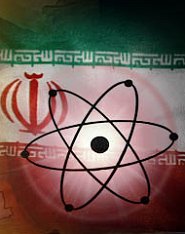German officials calls Iran's letter to George Bush unhelpful
U.S. officials have portrayed Iranian President Mahmoud Ahmadinejad's letter as a stalling tactic in negotiations among the five permanent members of the U.N. Security Council over how to step up pressure on Tehran to abandon uranium enrichment.

"There is unfortunately nothing in the letter that comes close to an answer to the questions asked by the IAEA," the U.N. nuclear watchdog, German Foreign Ministry spokesman Martin Jaeger told reporters. "So this letter strikes me as not very helpful in the context of the discussion about the Iranian nuclear program."
Germany, along with France and Britain, has led a long-running European effort to address worries about Iran's nuclear plans.
The three now plan to outline to Iran what kind of advantages it might be offered if it complied with international demands. Jaeger would not specify what the advantages might include, but said that "a lot is conceivable in terms of political, economic or technological cooperation."
German officials were noncommittal on the chances of direct dialogue between the U.S. and Iran.
Foreign Minister Frank-Walter Steinmeier has suggested repeatedly that the U.S. and Iran could hold direct discussions on the nuclear dispute if they in any case meet to discuss the situation in Iraq. The chances of that happening remain unclear.
"We can give neither advice nor instructions to the American government, the American president on the question of direct contacts or talks between the administration in Washington and the regime in Tehran," said Thomas Steg, a spokesman for Chancellor Angela Merkel. "Whether that is a path that could contribute to the solution of the nuclear conflict is a decision alone for the American president and the American government."
Subscribe to Pravda.Ru Telegram channel, Facebook, RSS!


